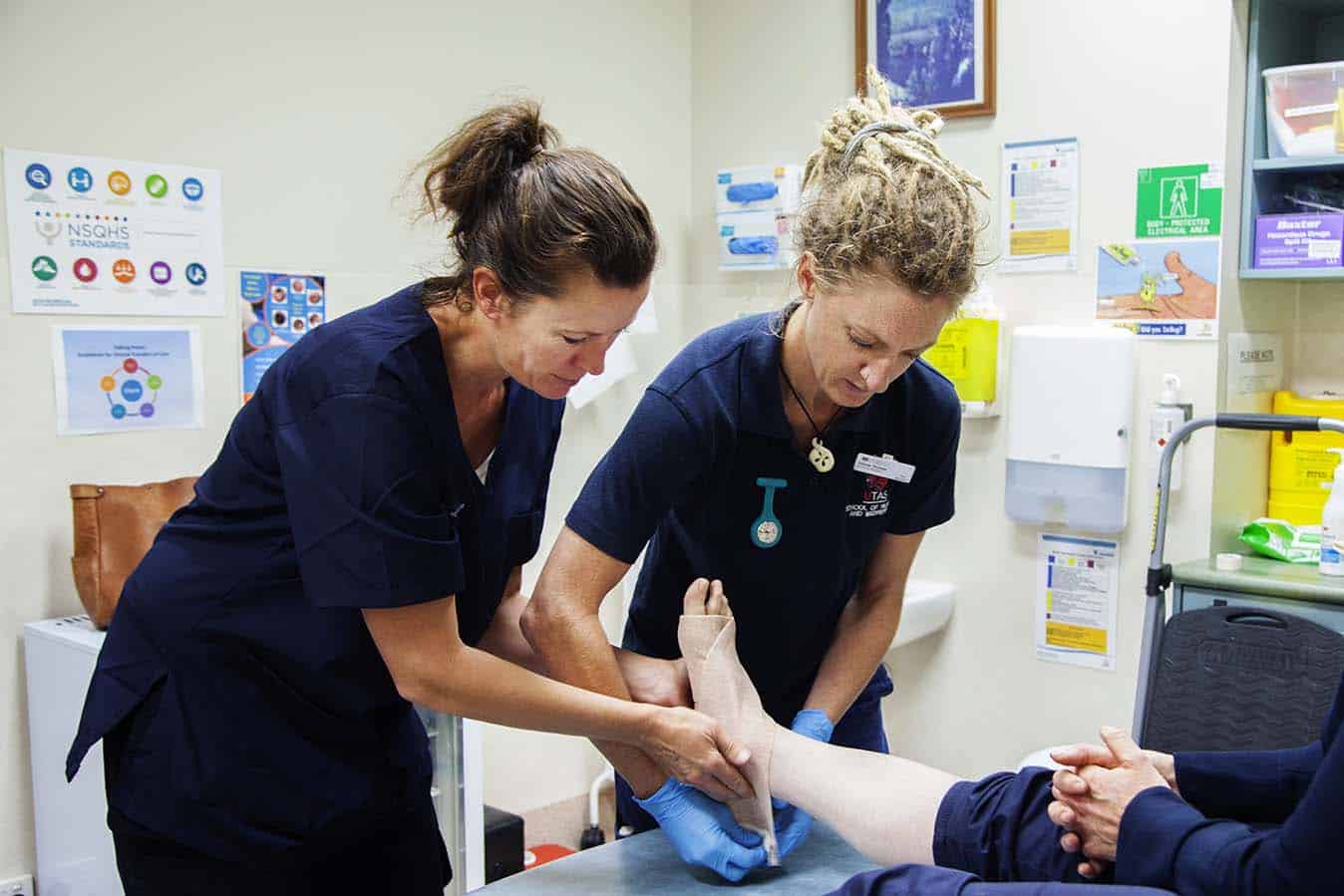Findings from this study provide opportunities to invigorate the undergraduate wound management curriculum by focussing on assessment, aetiology, mechanical or shear prevention, risk management, and wound care management.
During 2016-2018, on completion of their wound care learning, first-year nursing students were invited to complete a previously validated questionnaire about their knowledge and attitudes about pressure injury prevention.2-3
Students in the 2016 cohort were part of a national study4 and considered the baseline cohort. Additional online educational resources were provided in 2017,5 with further simulation activities delivered to support learning during 2018. Comparison across the cohorts found that although demographic variables were similar, knowledge scores remained low. Attitude scores across the years improved, so there are opportunities to engage and better prepare students on campus before going on professional experience placements. The quandary is how to harness this high attitude and translate positive intention into improved knowledge and action in practice.
Risk assessment and management of pressure injury prevention need to be overtly included within an already overcrowded curriculum. Decision-making during educational preparation regarding when, what and how to include reinforcement of pressure injury prevention needs discussion. Inclusion of the consequences of pressure injury in case studies or scenarios could scaffold learning about the potential for added complexity of care if pressure injuries develop.
Clinical facilitators and preceptors also have an opportunity to augment student understanding by supporting students to link risk assessment for pressure injury more overtly into the assessment of patients, clients, or consumers. Learning about negative health outcomes and the financial burden of pressure injury may also improve understanding of the importance of vigilance in preventing pressure injuries.6-7
Translating student attitude into higher levels of knowledge and action in practice is a challenge that needs to be embraced both on and off campus to assist students in becoming educationally prepared at graduation.
References
1 Mather C, Jacques A, Prior, SJ, Australian first-year nursing student knowledge and attitudes on pressure injury prevention: a three-year educational intervention survey study”, Nursing Reports, 2022, 12 (13) pp. 431-445. doi:10.3390/nursrep12030042 ISSN 2039-439X
2 Beeckman D, Defloor T, Demarré L, Van Hecke A, Vanderwee K. Pressure ulcers: Development and psychometric evaluation of the attitude towards pressure ulcer prevention instrument (APuP). Int. J. Nurs. Stud. 2010, 47, 1432–1441.
3 Beeckman D, Vanderwee K, Demarré L, Paquay, L, Van Hecke A, Defloor T. Pressure ulcer prevention: Development and psychometric validation of a knowledge assessment instrument. Int. J. Nurs. Stud. 2010, 47, 399–410.
4 Usher K, Fagan A, Brown JA, Mather C, Marlow A, Power T, van de Mortel T, West C, and Hutchinson M, Zhao L, and Terry V, Woods C, Lea J, The financial challenges for Australian nursing students attending placement-based work-integrated learning, Collegian, 2022, 29 (2) pp. 154-160. doi:10.1016/j.colegn.2021.07.005 ISSN 1322-7696
5 Mather C, Miller A, Saunders A. Undergraduate nursing students knowledge and attitudes towards pressure injury prevention. Aust. Nurs. Midwifery J. 2018, 26, 36.
6 VanGilder C, Lachenbruch C, Algrim-Boyle C, Meyer S. The international pressure ulcer prevalence™ survey: 2006–2015. J. Wound Ostomy Cont Nurs. 2017, 44, 20–28.
7 Dalvand S, Ebadi A, Gheshlagh R.G. Nurses’ knowledge on pressure injury prevention: A systematic review and meta-analysis based on the Pressure Ulcer Knowledge Assessment Tool. Clin Cosmet Investig Dermatol. 2018, 11, 613.
Authors:
Carey Mather RN, BSc, Grad Cert ULT, Grad Cert Creative Media Tech, PGrad Hlth Prom, MPH, PhD, FHEA FAIDH, MACN is a Senior Lecturer in the School of Health Sciences, College of Health and Medicine at the University of Tasmania, Launceston Tasmania
Sarah Prior PhD FISQua is Director of Healthcare Redesign, Course Coordinator – Healthcare Redesign in the Tasmanian School of Medicine, College of Health and Medicine at the University of Tasmania, Burnie, Tasmania








